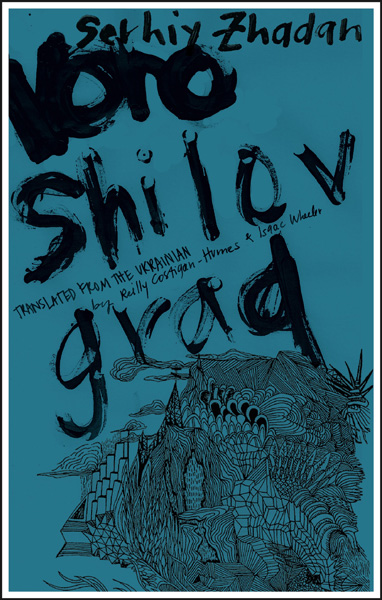Voroshilovgrad
Deep Vellum
has also published another European literary gem, VOROSHILOVGRAD, by the
Ukranian Serhiy Zhadan (translated by Reilly Costigan-Humes and Issac
Wheeler). Zhadan is something of a rebel-hero in the Ukraine: besides
writing fiction and poetry, he sings in a rock band, translates foreign
writers and poets, and leads political protests (in 2014, he was assaulted
outside a government building in Kharkiv, an incident described in The
New Yorker.)
VOROSHILOVGRAD is set in a provincial part of the Ukraine, located near
the Russian border and the Carpathian Mountains. Its main city is Luhansk,
known as Voroshilovgrad in the Soviet era but now called by its original
name in an attempt to wipe out the recent past. But traces of that past
are to be found everywhere: in the ruins of abandoned factories and apartment
blocks, the shuttered schools and summer camps, the blighted roads and
fields–-and, especially in the minds and memories of the natives.
Life under the communists may have been difficult, but it was a life,
not the living death of capitalism.

What Henry Soros, who works in a regional government office (a front for
money-laundering, he admits), discovers when he returns to Luhansk to
help save the family garage is deeply unsettling. Local gangsters have
announced that they intend to take the business over, along with a nearby
disused air strip, as part of a plan to “develop the region”
by building an asphalt plant. Rather than deal with the Mafia, Henry’s
brother took off for Amsterdam, leaving behind his only employee, a mechanic
named Injured, to mind the store.
Injured and Henry are old friends, ex-teammates on a 1980s soccer team
that won a local championship. In their stubborn, proud, independent way
they refuse to give in to the Mafia and hand over what is a still-thriving
business, the last gas station for some hundred miles. Eventually, they
are joined in battle by a slew of their other soccer pals, a raffish bunch
that includes ex-prisoners, drunkards, con artists and smugglers. Bad-assed
as they are, they are a cut above the new generation, the “finance
pricks, pig cops, corporate shits, young lawyers, up and coming politicians,
analysts, business owners.” As one of them sums it up so succinctly,
“Fuck all those capitalists.”
The fight
to defend old-fashioned socialist honor, humanism and principles (flawed
as they may be) is just one of the book’s many storylines. Zhadan’s
canvas is large and is filled with bold characters: gypsies, Shtundists,
nomads, ghosts, refugees (“an inexplicable army”) from Mongolia,
Tibet, even Afghanistan. There are some powerful, sexy women as well,
plus an ex-drug-addict priest who delivers surprisingly intelligent sermons.
Zhadan also tosses into the mix fantastic and surreal flights of prose;
poetic descriptions of the still-beautiful parts of the Ukraine, with
its rich, black, enduring earth.
The last image in the book is of the priest, who while preaching to the
farmers about Daniel in the lion’s den “bends over to retie
his shoelace, straightens back up, lifts his hands to pray and exhales
a blue-pink tongue of flame, the fire of bittersweet joy.”
